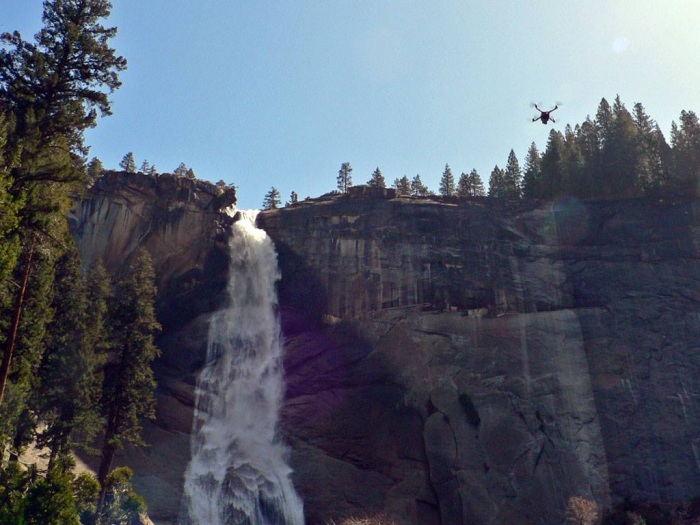If you own a private drone or unmanned aerial vehicle (UAV) in the United States, you’re about to lose a lot of public land where you can fly it. The National Park Service is taking steps to ban UAVs from 400 national parks — a total of 84 million acres of public land and waterways, saying that the technology is annoying to visitors, harasses wildlife, and threatens safety.

The park service’s director, Jonathan Jarvis, told the Associated Press he doesn’t want UAVs scaring birds from their nest, hovering above rock climbers, or zooming in for a close-up of Mount Rushmore. He said that he would sign a policy memorandum on Friday that would direct superintendents of the service’s 401 parks to compose rules that prohibit the launching, landing, or operation of unmanned aircraft in their parks.
Two of the service’s largest parks — the Grand Canyon in Arizona and Zion in Utah — already have rules in place that ban drones. Others have interpreted existing regulations to permit them to ban drones, but with Jarvis’s memorandum, each park must now change its compendium so that a ban is enforceable.
A number of incidents have led to Jarvis feeling the need to take action:
• Yosemite Nation Park: Hobbyists have been using UAVs to film the park’s famous waterfalls and capture close-ups of climbers working their way up its granite walls.
• Zion Park: There was a reported incident of a drone harassing a bighorn sheep, which resulted in its youngsters becoming separated from their herd.
• Mount Rushmore: A UAV was confiscated after flying above 1,500 visitors seated in an amphitheater, and then over the heads of the four U.S. presidents carved into the mountain.
Obviously, drone users have their complaints about a ban on the technology. Some say it favors one group of park users (that is, those who don’t fly UAVs). Others argue that many UAV flights are done without incident, and with respect for park visitors and wildlife.
While the parks are changing their individual rules, the National Park Service will be drafting an all-encompassing set of rules to ban drone flights in parks nationwide. Jarvis said he hopes to have the proposal ready in 18 months. When asked about what would be included in the ban, he only described it as an overall ban on “operations inside parks” and not high-altitude flight over parks.
Worth noting: The memorandum the superintendents are working on must include language in it that states model aircraft hobbyists and clubs that already have approval to operate in certain parks may continue to do so. Additionally, there should be language in the rules that allow the parks to grant permits for drone flights for other purposes, including research, search and rescue, and firefighting.
Commercial operators like filmmakers can also apply for a permit to operate a drone in a national park.
Story via phys.org
Advertisement
Learn more about Electronic Products Magazine





